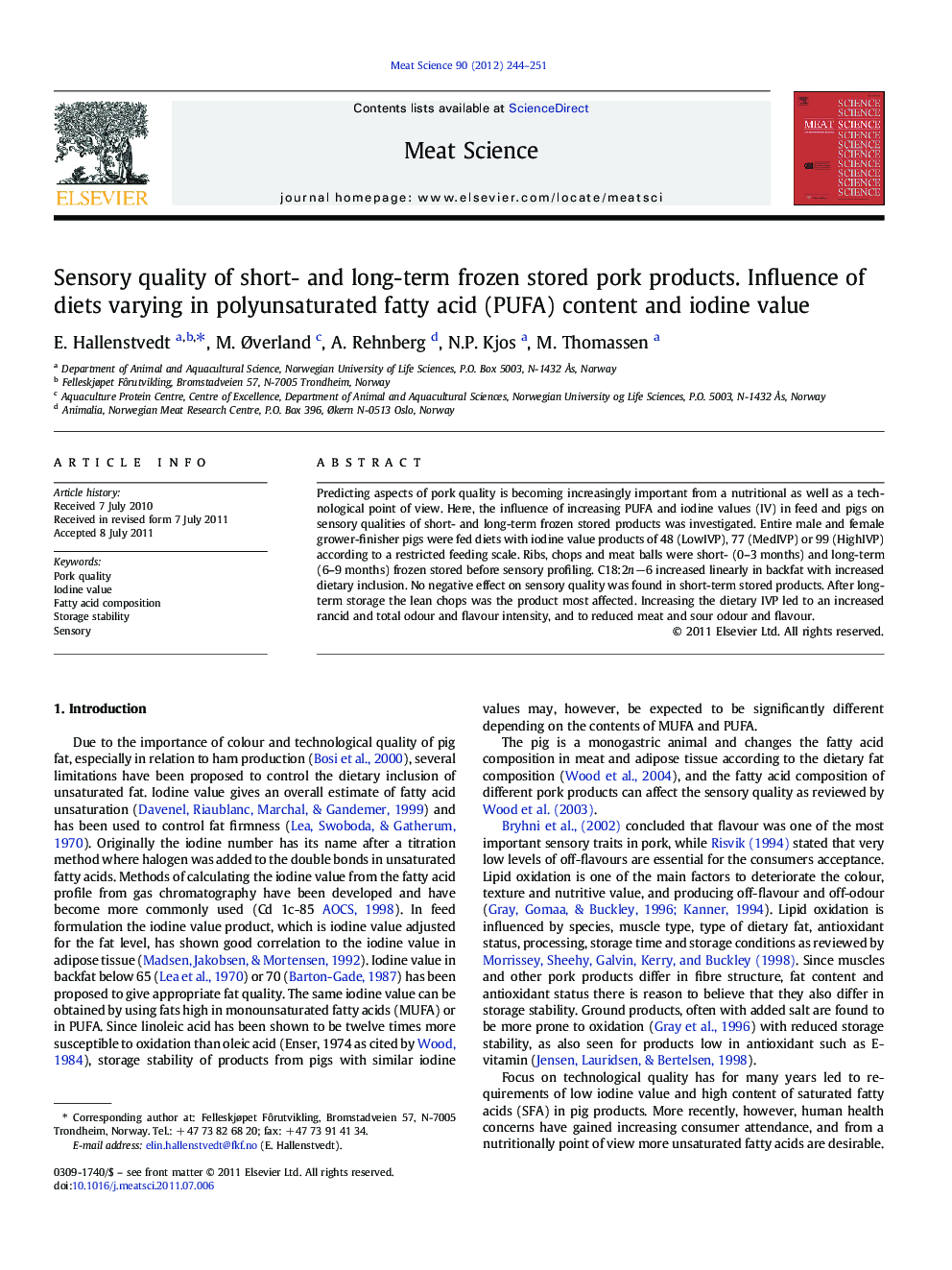| Article ID | Journal | Published Year | Pages | File Type |
|---|---|---|---|---|
| 5792752 | Meat Science | 2012 | 8 Pages |
Predicting aspects of pork quality is becoming increasingly important from a nutritional as well as a technological point of view. Here, the influence of increasing PUFA and iodine values (IV) in feed and pigs on sensory qualities of short- and long-term frozen stored products was investigated. Entire male and female grower-finisher pigs were fed diets with iodine value products of 48 (LowIVP), 77 (MedIVP) or 99 (HighIVP) according to a restricted feeding scale. Ribs, chops and meat balls were short- (0-3Â months) and long-term (6-9Â months) frozen stored before sensory profiling. C18:2nâ6 increased linearly in backfat with increased dietary inclusion. No negative effect on sensory quality was found in short-term stored products. After long-term storage the lean chops was the product most affected. Increasing the dietary IVP led to an increased rancid and total odour and flavour intensity, and to reduced meat and sour odour and flavour.
⺠Several dietary fatty acids were deposited linearly in backfat. ⺠Sensory quality of short-term stored products were not influenced by dietary fat. ⺠Rib and meat balls were minor influenced after storage even with high PUFA content. ⺠Increasing dietary IVP increased rancid flavour and odour of long-term stored chops.
